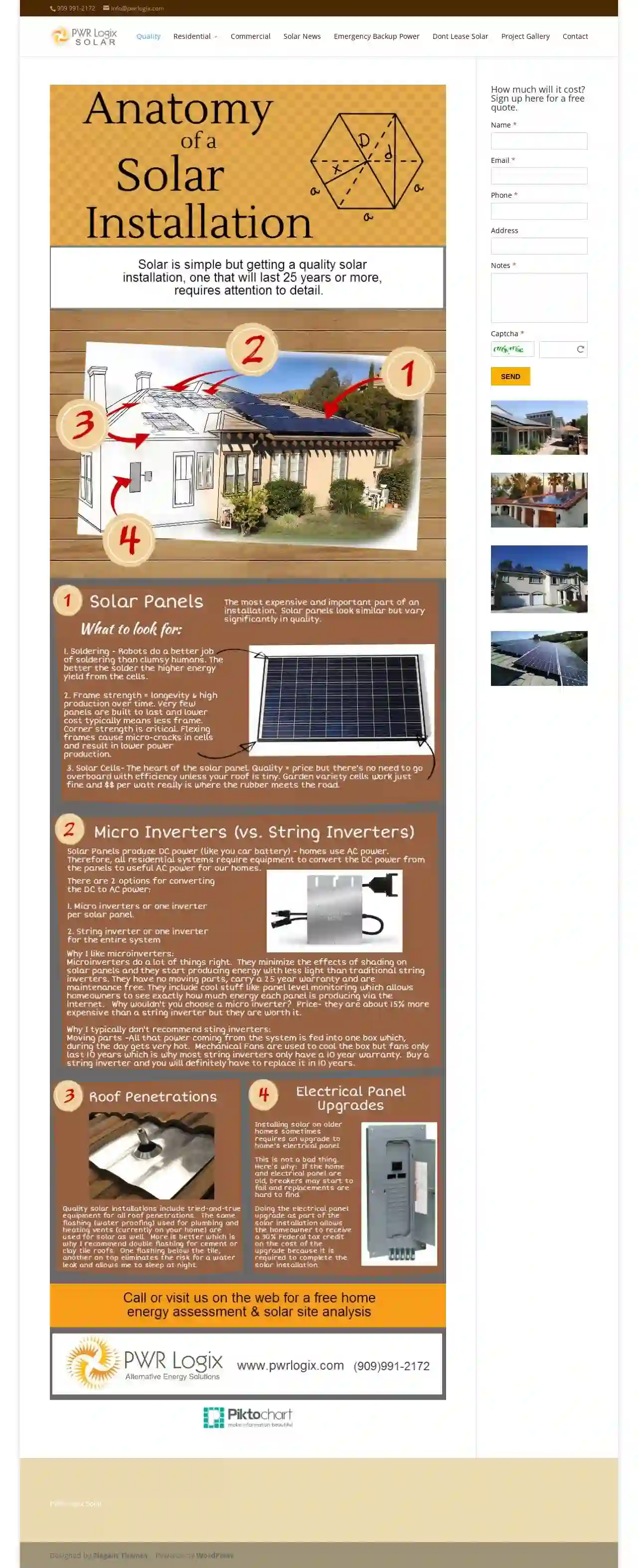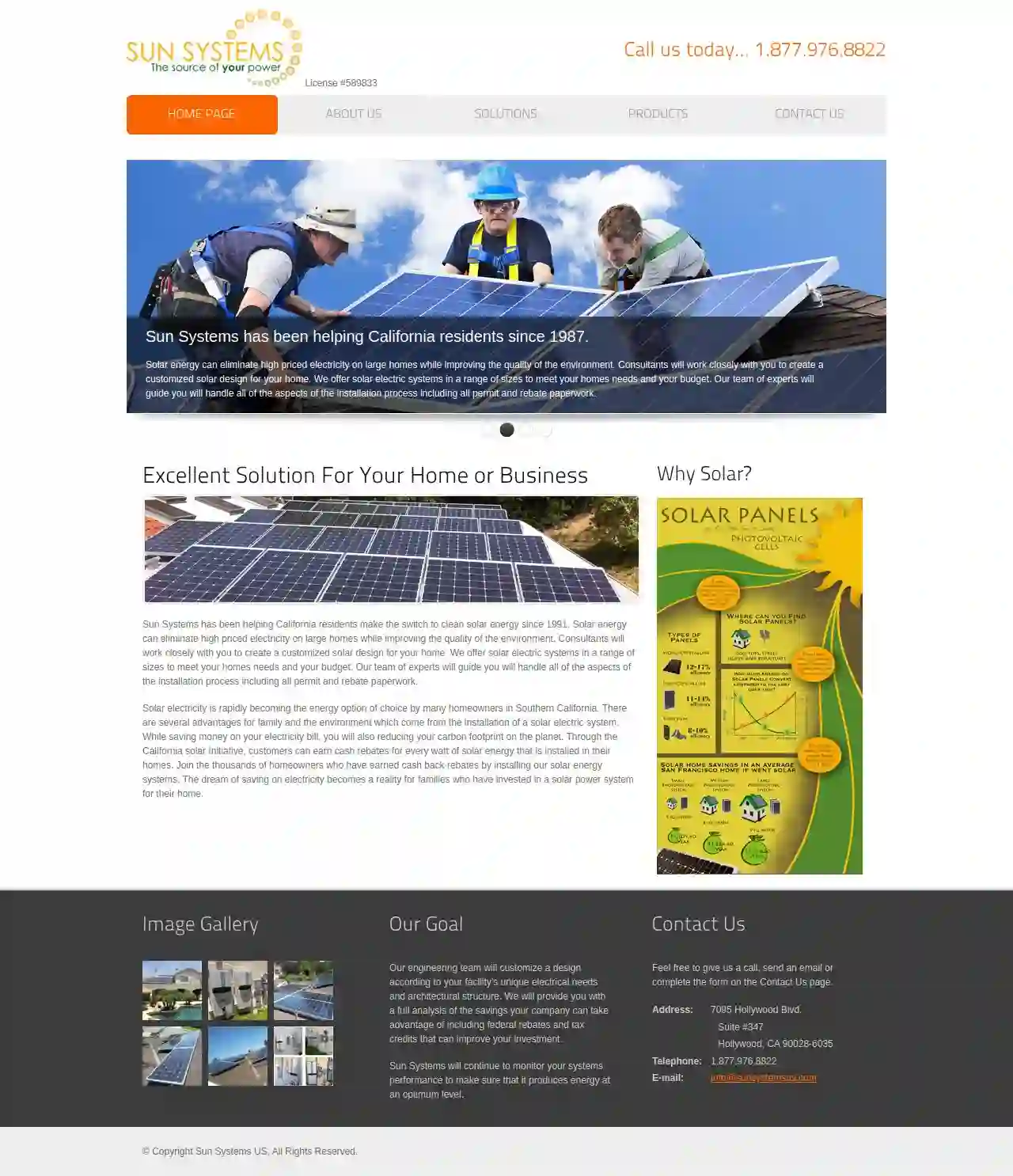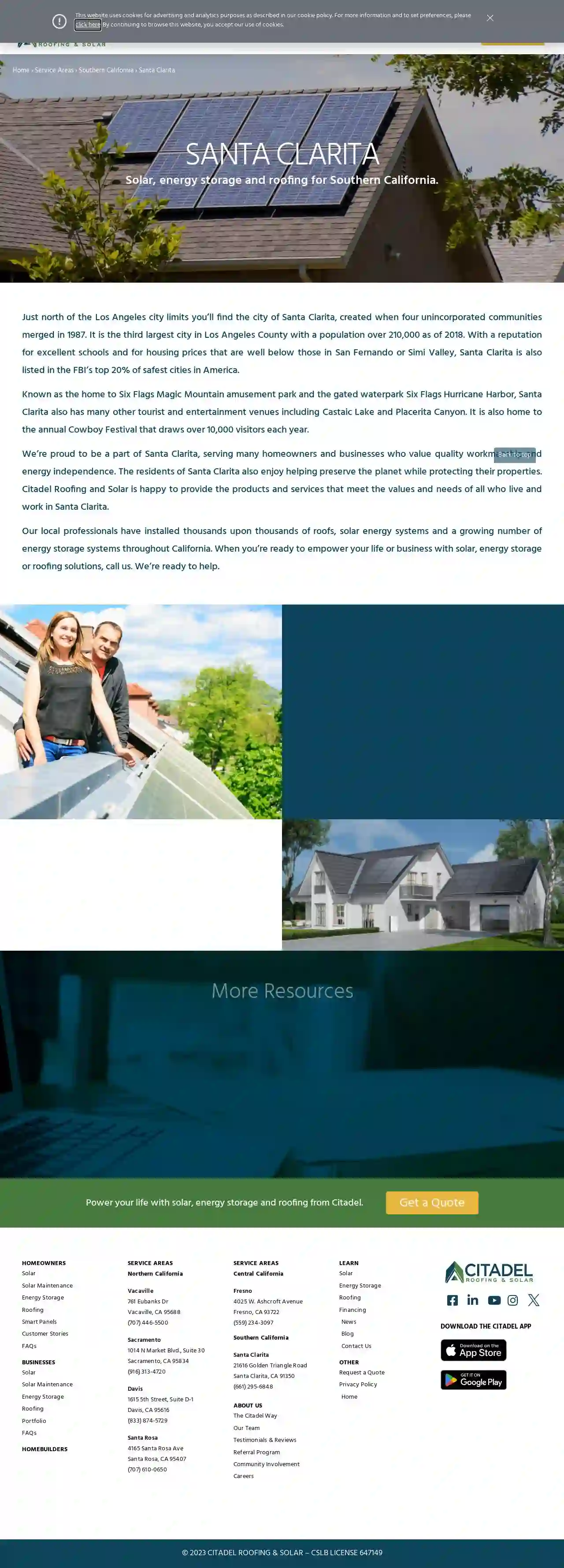Solar Installers Placentia
Find Solar Companies in Placentia
Receive 3 FREE Solar Installation Companies quotes for your project today! Compare profiles, reviews, accreditations, portfolio, etc... and choose the best service.

Avantus
51 reviews4370 Town Center Blvd., Suite 110, El Dorado Hills, 95762, USAvantus is a company dedicated to advancing the clean energy transition and fighting climate change through the development of high-impact clean energy solutions. Founded by Tom Buttgenbach in 2009, the company has a strong foundation of engineering and technical excellence, with a portfolio of clean, smart power plants that are proving what's possible when technology and sustainability work together.
- Services
- Why Us?
- Accreditations
- Our Team
- Testimonials
- Gallery
Get Quote
NexGen Construction - Best Solar Installer, Battery Backup, Generators, EV Charging, Service Panel Upgrades for Homes
4.619 reviews10611 Calle Lee, Ste 137, Los Alamitos, 90720, USNexGen Construction Services, Inc. is a leading provider of solar panels, home batteries, and home generators. They offer a range of services including residential solar, solar benefits, and solar leases. Their team is dedicated to providing high-quality products and services to their customers.
- Services
- Why Us?
- Accreditations
- Our Team
- Testimonials
- Gallery
Get Quote
Green Convergence
4.8137 reviews28476 Westinghouse Pl, Valencia, CA, 91355, USGreen Convergence is a trusted residential and commercial solar company that offers energy-efficient solutions. They provide a unique low-profile racking system, top-quality equipment, and protection against roof leaks. Their services include residential solar, commercial solar, energy storage, and roofing.
- Services
- Why Us?
- Accreditations
- Our Team
- Testimonials
- Gallery
Get Quote
Solartint USA
521 reviews24507 Mooncrest Cir., Murrieta, 92562, USSolartint USA is a registered trademark that supplies award-winning, US-made Madico Inc window films. With superior optical clarity, durable scratch-resistant coatings, and dependable lifetime warranties, Solartint USA aims to enhance the look and comfort of your work or living space. Owner-operated with 40 years of experience, licensed, and insured for your security, no job is too small or too large. Solartint USA provides window tint services for Murrieta & Temecula areas as well as many others within 50 miles.
- Services
- Why Us?
- Accreditations
- Our Team
- Testimonials
- Gallery
Get Quote
PWR Logix Solar
N/A, USPWR Logix Solar is a solar energy company that offers residential and commercial solar solutions. They provide emergency backup power and offer a 26% solar federal tax credit. The company also has a project gallery and offers free quotes for potential customers.
- Services
- Why Us?
- Accreditations
- Our Team
- Testimonials
- Gallery
Get Quote
Sun Systems
7095 Hollywood Blvd., Suite #347, 7095 Hollywood Blvd. Suite #347, Hollywood, 90028-6035, USSun Systems has been helping California residents make the switch to clean solar energy since 1991. Solar energy can eliminate high priced electricity on large homes while improving the quality of the environment. Consultants will work closely with you to create a customized solar design for your home. We offer solar electric systems in a range of sizes to meet your homes needs and your budget. Our team of experts will guide you will handle all of the aspects of the installation process including all permit and rebate paperwork.
- Services
- Why Us?
- Accreditations
- Our Team
- Testimonials
- Gallery
Get Quote
Solar Sun Rings, Inc.
51 reviews123 Solar Way, Suite 100, Murrieta, 92562, USSolar Sun Rings are designed to harness green energy to maintain your pool / spa temperatures, making costly heating bills a thing of the past.
- Services
- Why Us?
- Accreditations
- Our Team
- Testimonials
- Gallery
Get Quote
Citadel & Roofing Solar
31 reviews21616 Golden Triangle Road, Santa Clarita, CA, 91350, USCitadel Roofing & Solar is one of the most trusted names in solar and roofing throughout the state of California. Our unwavering goal is to deliver an unparalleled level of customer service, so you can feel confident and cared for every step of the way when you choose us for your home improvement project.
- Services
- Why Us?
- Accreditations
- Our Team
- Testimonials
- Gallery
Get Quote
Solarflexion, Inc
4.738 reviews38365 Innovation Ct Suite 1005, N/A, Murrieta, 92563, USSolarflexion is a leading provider of high-quality parts for various solar applications. Our reliable product offerings support all your residential, commercial, and industrial projects. Solarflexion’s experienced sales team utilizes our network of suppliers to ensure you receive outstanding products at exceptional prices, with superior customer service.
- Services
- Why Us?
- Accreditations
- Our Team
- Testimonials
- Gallery
Get Quote
Gorilla Solar Cleaning
542 reviews123 Solar St, Long Beach, CA, 90807, USGorilla Solar Cleaning has been providing the best solar and window cleaning to Long Beach and surrounding areas. Fair prices, superior quality and exceptional customer service are guaranteed when you work with us. Gorilla Solar Cleaning is dedicated to providing exceptional solar panel cleaning services, ensuring a hassle-free experience for clients. Our dedicated team is committed to delivering exceptional results, leaving your solar panels sparkling clean and functioning optimally.
- Services
- Why Us?
- Accreditations
- Our Team
- Testimonials
- Gallery
Get Quote
Over 4,210+ Solar Companies on our platform
Our solar companies operate in Placentia & beyond!
SolarCompaniesHub has curated and vetted the Best Solar Installers in and around Placentia. Find a top & reliable contractor today.
Frequently Asked Questions About Solar Installers
- System size
- Roof complexity
- Weather conditions
- Permitting and inspections
- Installer's schedule
- Analyze your energy bills
- Assess your roof's suitability
- Calculate your potential solar energy generation
- Recommend a system size that meets your needs and goals.
Can I go completely off-grid with solar panels?
How long does it take to install solar panels?
What is net metering, and how does it work?
How do I choose the right solar panel system size for my needs?
Can I go completely off-grid with solar panels?
How long does it take to install solar panels?
- System size
- Roof complexity
- Weather conditions
- Permitting and inspections
- Installer's schedule
What is net metering, and how does it work?
How do I choose the right solar panel system size for my needs?
- Analyze your energy bills
- Assess your roof's suitability
- Calculate your potential solar energy generation
- Recommend a system size that meets your needs and goals.